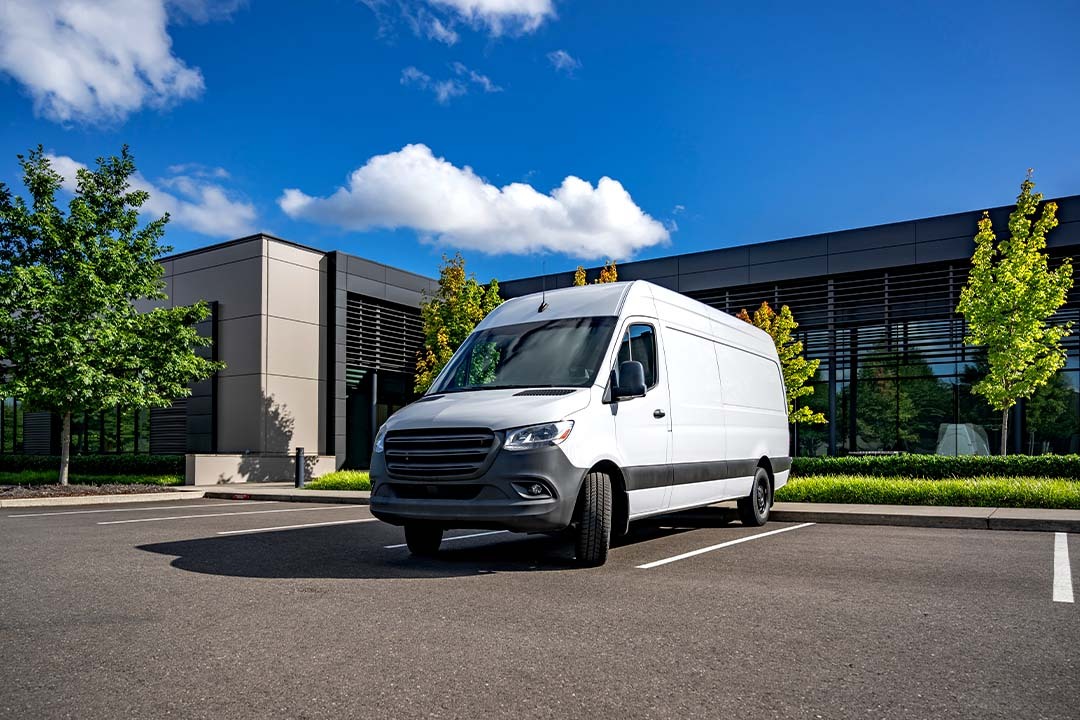
Fleet Tax Deductions to Help You Save More Money
Running a fleet comes with plenty of moving parts — literally. Between maintenance, insurance, fuel, and payroll, every dollar counts. But too many small fleet owners leave money on the table when tax season rolls around simply because they don’t know what they can write off.
To help, we have listed some of the most common (and sometimes overlooked) deductions that could make a big difference for your bottom line.

1. Vehicle expenses
You can usually deduct the cost of operating your fleet vehicles.
Here are two ways to do it:
Standard mileage rate: Multiply your total business miles by the IRS standard rate (which changes yearly). GPS vehicle tracking logs every mile so drivers don’t have to, giving you an accurate total for tax time.
Actual expenses method: Track all your real costs. Things like gas, oil changes, tires, repairs, insurance, and even depreciation. Keep every receipt, that way if the IRS wants more info, you have the details ready to go. You can also use a fleet corporate card to help automate and categorize purchases so drivers don’t have to.
Note: Linxup Commercial GPS Fleet Tracking automatically logs mileage, which makes your records audit-proof and saves hours of paperwork.
2. Fleet maintenance and repairs
Maintenance or repairs on your work vehicles are typically tax deductible. That includes everything from routine service to repairs and replacement parts. It’s important to keep any and all receipts (paper or digital copies) related to fleet maintenance for tax time.
Note: Automating your maintenance schedules saves time, keeps vehicles in working order, and allows you to pull a comprehensive report come tax time. You can even see your full fleet’s service history, track your expenses, and see upcoming license renewals — all in one place.
3. Business tools, equipment, and technology
Investing in better tools and tech doesn’t just improve how you work, it can also lower your tax bill.
This includes everything needed to help your team get the job done. From replacement tools and ladders to dash cams and software, if they are used for business purposes, they can qualify as a deductible expense. Fleet tech like Linxup GPS trackers, AI dash cams, or Bluetooth tool tracker tags fall into this category too, since they directly support your daily operations.
Under Section 179, you may even be able to deduct the full purchase price of qualifying equipment the same year you buy it.
That can include:
- Work trucks or trailers
- GPS trackers and dash cams
- Tablets or laptops for dispatch and job management
- Power tools or diagnostic equipment
Note: Fleet managers know that protecting equipment is a necessity, not a luxury. GPS trackers that prevent theft or a dash cam that protects you from false claims both have real ROI — for taxes and beyond.
4. Licensing, certifications, and subscriptions
Anything you pay to stay licensed, certified, or informed for your trade is deductible.
That includes:
- State or local business licenses
- CDL renewals or DOT medical exams
- Safety certifications and continuing education
- Trade association dues or union memberships
- Paid subscriptions to trade publications, industry apps, or fleet management software
If it helps you stay compliant, competitive, or keeps you up-to-date with industry trends, it probably counts.
5. Cell phones and internet service
Most fleet managers need to be able to run the business from their phone. And for that reason, you can deduct the cost of cell phone and service. If you share a line for personal and professional use, you can still write off the portion used for work.
The same applies to Wi-Fi and business platforms like VoIP systems or dispatch messaging tools. These allow you to work from anywhere, and are considered tax deductible business expenses.
6. Education and training
Training keeps your team safe and confident on the job but comes at a cost. The good news? Most of those expenses are tax deductible.
If you bring in a safety consultant to evaluate your fleet’s risks or help build a formal safety program, that investment counts as a legitimate business expense. The same goes for online courses, webinars, certifications, and driver coaching sessions that help your team perform better and reduce liability on the road.
Note: Mileage and travel costs for attending training or conferences also qualify, so those drives to safety events or certification classes can add up to additional deductions.
7. Insurance expenses
Your fleet insurance is one of the most important — and most overlooked — deductions. Premiums for commercial auto coverage, liability insurance, and physical damage protection on your vehicles are all tax-deductible business expenses.
Regardless of how many vehicles you have in your fleet, those monthly or annual payments can add up fast. Be sure to keep detailed insurance invoices and payment records so you can claim every dollar when tax season rolls around.
8. Retirement contributions
Saving for your future is smart — and deductible. If you’re the business owner, contributions to SEP-IRAs, SIMPLE IRAs, or solo 401(k)s can reduce your taxable income. These plans are designed for the self-employed and small businesses, so it’s worth talking to your accountant about which one fits best.
Most contributions must be made before the end of the tax year to count, so don’t wait until April to start thinking about it. Also, be sure to review your plan annually for additional tax deduction opportunities.
9. Outsourced professional services
Professional services you outsource that help you run your business are fully tax deductible. Think accountants, tax preparers, payroll processors, attorneys, marketing consultants, etc.
If you’re paying for help that’s directly related to your business’s safety, compliance, or operations, it’s likely deductible.
Like always, make sure you keep invoices and payment records (electronic copies work!) so you have proof when it’s time to file. Staying organized helps you detail every eligible deduction.
10. Home office (if you qualify)
If you manage scheduling, payroll, or dispatch from a dedicated space in your home, you can claim a portion of your rent, mortgage interest, and utilities. The space must be used regularly and exclusively for business. If this applies, the savings can add up fast.
The bottom line: Don’t leave money on the table
Running a fleet is demanding enough without leaving money on the table. From your phone bill to your retirement plan, if it helps you run your business, there’s a good chance it’s deductible.
Keep clean records, use tech like Linxup GPS tracking to log mileage automatically, and review this list with a tax pro who knows fleet businesses. With a little planning, you’ll roll into tax season with confidence — and keep more of your hard-earned cash where it belongs: back in your business.
Fleet tax deduction checklist
Running a fleet is expensive enough without giving extra to the IRS. This Fleet Tax Deduction Checklist helps you make sure you’re tracking every eligible expense — from maintenance and mileage to tools and tech.
Download the free tax deduction checklist
Vehicle expenses
- Mileage logs (from GPS or odometer readings)
- Fuel receipts and fuel card statements
- Vehicle loan interest and depreciation
- Maintenance and repair invoices
- Replacement parts and tire receipts
- Service reports and inspection logs
Business tools, equipment & technology
- Tools, equipment, and diagnostic gear
- GPS trackers, dash cams, and Bluetooth tag receipts
- Tablets, laptops, or phones for field useCommunication platforms or VoIP subscriptions
- Business-related software subscriptions
- Purchases eligible for Section 179 deduction
- Quarterly estimated tax payments
Licensing, certifications & subscriptions
- Business licenses and renewals
- CDL renewals and DOT medical exams
- Trade association dues or union memberships
- Safety certifications or continuing education receipts
- Subscriptions to fleet software or trade publications
Education & training
- Safety consultant fees
- Driver coaching programs
Insurance expenses
- Commercial auto insurance premiums
- Liability and physical damage coverage
- Policy statements and payment records
Retirement contributions
- SEP-IRA, SIMPLE IRA, or solo 401(k) contributions
- Employer contributions for eligible staff (if applicable)
Outsourced professional services
- Accountant, tax preparer, or bookkeeper fees
- Payroll or HR service costs
- Legal, financial, or marketing consultant invoices
Home office (if you qualify)
- Rent or mortgage interest (business-use portion)
- Utilities and internet
- Office furniture, printer, or computer used exclusively for business
Accurate records mean bigger deductions. Linxup helps you track every vehicle, tool, and trip automatically — so you’re always ready when tax season rolls around.



